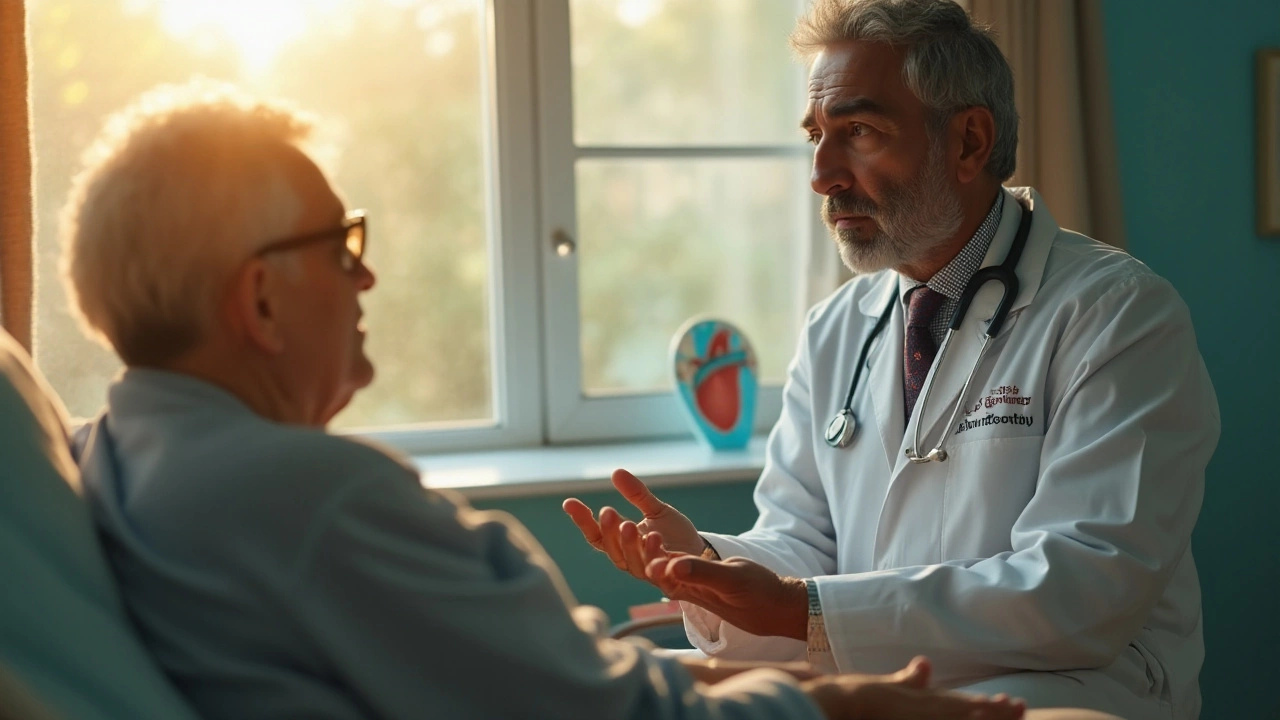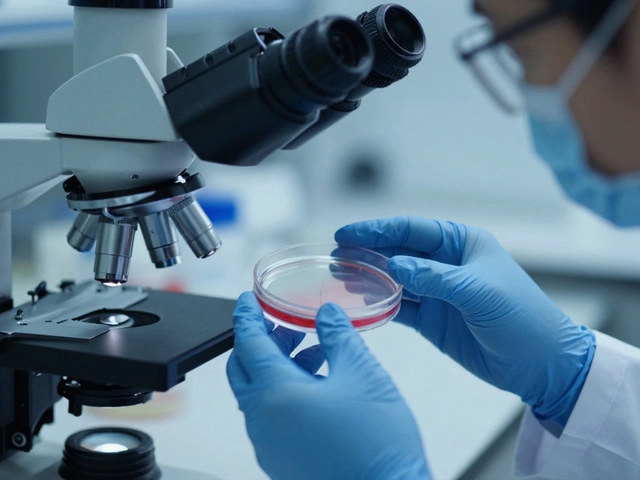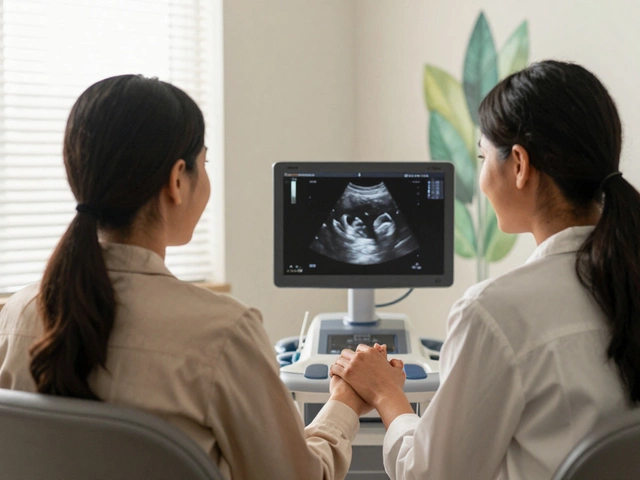Heart surgery is a significant life event that can bring about many changes. Among the various aspects of life it touches, the subject of resuming intimacy, especially oral activities, stands out for many. For those recovering from such a serious procedure, questions naturally arise about when and how to safely return to a fulfilling personal life without risking their health.
Breaking it down into manageable parts helps start the conversation on a topic that often feels difficult to address. By understanding the basics of what heart surgery entails, recognizing the nuances of the recovery process, and getting solid advice on safely resuming various activities, you can manage expectations and foster open dialogues with healthcare providers. It's all about a gradual, informed return to normalcy—with health taking the front seat.
- Understanding Heart Surgery
- The Recovery Process
- Resuming Intimacy
- Safety Considerations
- Communicating with Your Doctor
Understanding Heart Surgery
Heart surgery, often regarded as one of the most intricate medical procedures, can involve various techniques and goals. Whether it’s repairing or replacing damaged structures like valves, or bypassing blocked arteries, the primary aim is to improve heart function and enhance longevity. These surgeries can be planned in advance or result from emergency situations. While the approach might be invasive like open-heart surgery or minimally invasive such as angioplasty, the overarching goal is to ensure the heart pumps blood efficiently, without hindrance or leakages.
The motivation behind undergoing heart surgery usually stems from conditions such as coronary artery disease or heart valve disease. For example, coronary bypass surgery is a commonplace procedure that redirects blood around clogged arteries to improve blood flow. Techniques have evolved, making surgeries like transcatheter aortic valve replacement less invasive over the years. This advancement reduces hospital stay and recovery time significantly, which is a relief for both patients and healthcare providers.
Given the critical nature of heart surgery, the post-operative phase demands careful monitoring. This recovery period requires adjustments to lifestyle, including heart surgery recovery strategies like maintaining a balanced diet and engaging in light physical activities. Frequently, doctors prescribe a cardiac rehabilitation program to help regain strength, reduce stress, and lower the risk of future heart problems. A significant aspect to consider is how quickly an individual can return to normal activities, including intimate aspects like oral activity post-surgery. As Dr. Anne Curtis, a renowned cardiologist, states,
"Patients should always remember that while medical advancements offer quick relief, recovery is a marathon, not a sprint."Such guidance emphasizes the gradual return to routine life, respecting the body's healing timelines.
The decision-making process before surgery itself is an intensive phase involving evaluating the risks versus benefits. Factors such as the patient’s overall health, age, and the severity of their condition are crucial. Doctors may use echocardiograms, angiograms, or cardiac MRI to determine the best course of action. Surgeons utilize groundbreaking technologies like robotics and 3D imaging to enhance precision and lower complications. Interesting findings from the National Heart, Lung, and Blood Institute suggest that the success rate of heart surgeries has significantly improved with mortality rates reducing each year. These insights bolster confidence for those weighing the options of surgery.
It remains essential for those considering heart surgery to actively engage in discussions with their healthcare professionals. Questions regarding anesthesia, post-surgery care, potential risks, and recovery timelines are vital. Remember, open communication is not only beneficial for understanding the procedure but also for addressing emotional concerns. The overarching aim is not just physical healing, but mental and emotional resilience, as these are equally critical for a complete recovery.
The Recovery Process
Recovering from heart surgery involves a meticulously structured journey that requires patience, self-care, and consistent medical guidance. The period following surgery is crucial, as the body adjusts to the changes, healing the incisions, and strengthening the heart's function. Initial recovery often begins in the hospital, where intensive monitoring ensures that complications such as infections, bleeding, or arrhythmias are promptly addressed. Patients might spend several days, sometimes even a week, under medical supervision, depending on the complexity of the surgery and their general health condition prior to the operation.
Once discharged, the recovery process continues at home, presenting a delicate balance of rest and gradual physical activity. It is common for patients to experience fatigue, bouts of emotion, and variations in appetite as the body works to repair itself. Medical professionals typically outline a clear set of guidelines to follow, ensuring a safe recovery. These will often include structured exercise programs designed to rebuild stamina and improve cardiovascular performance over time. Simple activities like walking can be scaled up gradually as endurance grows, often under the guidance of a cardiac rehabilitation specialist.
Nutritional adjustments play a significant role in heart surgery recovery. Lean proteins, whole grains, fruits, and vegetables are typically emphasized to support healing and promote cardiovascular health. Patients are often advised to monitor salt intake and avoid processed foods that could impact blood pressure and overall heart function. Maintaining a balanced diet not only aids physical recovery but also positively influences mood and energy levels.
According to the American Heart Association, "Patients recovering from heart surgery who adhere closely to a heart-healthy diet typically report improved outcomes and fewer complications."Ensuring adequate hydration is another key aspect, with medical staff often providing tailored advice based on individual needs and recovery status.
Engaging with professionals during this period is essential. Regular follow-up appointments allow healthcare providers to monitor progress and address any concerns that may arise. These consultations are crucial in managing medications, adjusting doses as needed to optimize heart function, and prevent clotting or other complications post-surgery. Patients should feel empowered to discuss any discomfort or persistent issues during these visits, as well as any intentions to resume everyday activities, including intimacy. Transparent communication with doctors helps craft a realistic timeline and manage expectations effectively.
Finally, emotional health plays a vital role in the heart surgery recovery process. It's not uncommon for individuals to experience a range of emotions, including anxiety and depression. Support groups, therapy, and open conversations with family and friends can offer comfort and insights. Such interactions provide a platform to exchange experiences and coping strategies, reinforcing the fact that emotional responses are a natural part of healing. Recognizing and addressing emotional needs guide patients toward a holistic recovery, encompassing physical, mental, and emotional facets.
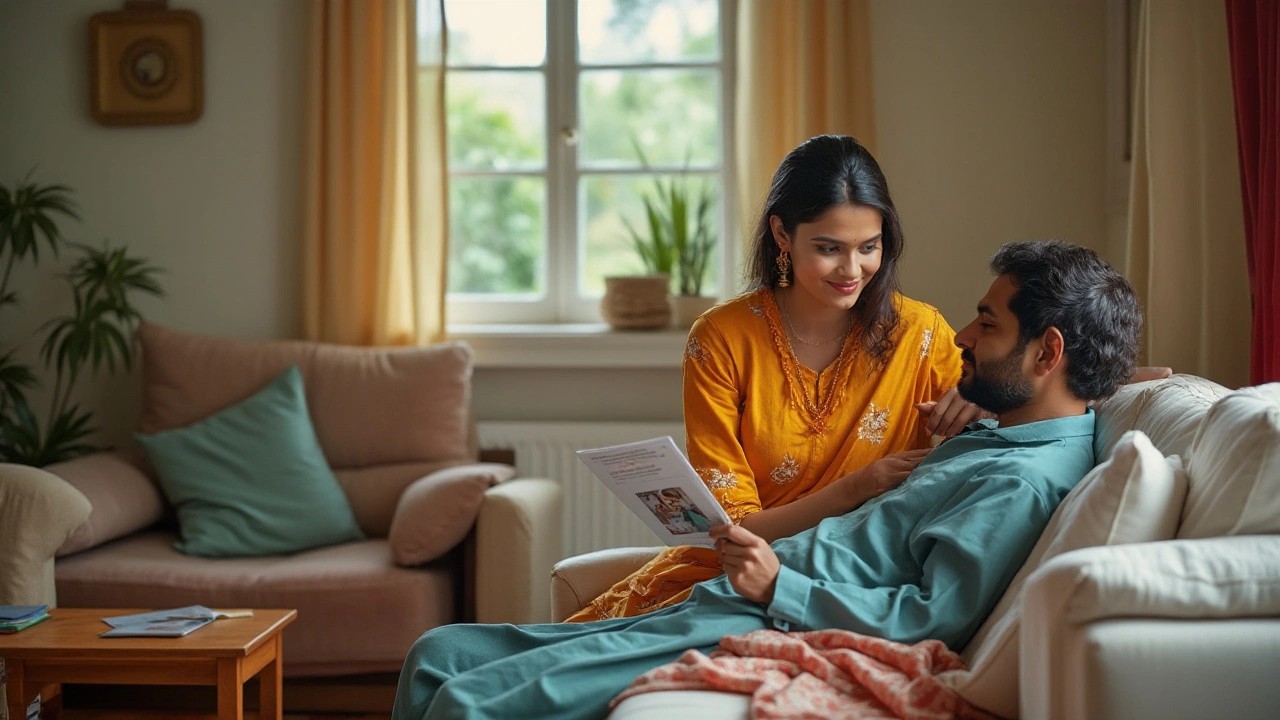
Resuming Intimacy After Heart Surgery
Embarking on the journey of intimacy after heart surgery is something that many patients and their partners anticipate and cautiously approach. The heart, a vital organ, needs time to heal after undergoing any surgical intervention, and the recovery timeline varies greatly among individuals. Typically, healthcare providers advise that patients wait several weeks to a few months before resuming intimate activities. This recommendation might depend on the specific procedure done, such as a bypass or valve replacement, and the patient's unique recovery pace.
Intimacy isn't just about physical touch; it's an emotional connection that plays a critical role in overall well-being. Patients may experience a mix of emotions ranging from anxiety about triggering heart problems to frustration over physical limitations. The good news is that most individuals can return to their usual levels of intimacy eventually. The American Heart Association notes that once you're able to comfortably climb two flights of stairs without undue discomfort, engaging in sexual activity is likely safe. This guideline helps patients measure their readiness in a simple and effective manner. Heart health tips emphasize the importance of listening to your body's signals. If there are any doubts or discomfort, it's crucial to consult with a healthcare provider.
During the initial phases of recovery, focusing on affection that isn't physically demanding such as holding hands, cuddling, or simply sharing a meaningful conversation can be beneficial. This not only helps maintain closeness but also reduces any performance pressure stemming from surgical recovery. As physical strength and confidence build up, couples may gradually reintroduce more physically engaging activities. There might be a fear that sexual activity could strain the heart post-surgery; however, scientists have repeatedly found that sex is generally a moderate form of exercise—a reassuring fact for many. In a study conducted in 2020, it was reported that patients who resumed sexual activity in a considerate manner post-heart surgery showed no significant increase in adverse cardiac events compared to those who abstained.
According to Dr. Martha Grogan, a cardiologist at the Mayo Clinic, 'A healthy sex life is part of a healthy life. Feeling comfortable about your sexual health is an important aspect of your recovery journey.' This highlights the importance of not underestimating the emotional and psychological aspects tied to intimacy after heart surgery.
Communication with your partner is essential. Discussing concerns openly can help alleviate worries and ensure both partners are comfortable and understanding of the pace needed. It's important to remember that emotional support is a significant part of recovery. This delicate post-operative period can also be an opportunity for couples to explore other forms of intimacy that they might not have focused on previously, strengthening their emotional ties even further. Conventional medical wisdom emphasizes consistent follow-ups and discussions with healthcare providers, who can offer guidance based on individual recovery progress.
Physical resilience isn't the only consideration; medications prescribed post-surgery might also play a role in one's sexual function. Certain drugs, such as beta-blockers, common in heart surgery recovery, can lower libido or cause erectile dysfunction. Patients are encouraged to discuss these side effects with their doctors, who might adjust medication or prescribe treatments to address these concerns. Each patient's roadmap to normalcy is unique, and acknowledging both the physical and emotional elements of recovery is the key to successfully resuming intimacy.
Safety Considerations
The journey back to normalcy after heart surgery recovery requires careful thought, especially when contemplating a return to intimate activities, including oral engagement. Stamina isn't the only concern; the heart's ability to handle stress is crucial. Initially, the heart is still healing, and any undue stress can be risky. Experts often stress the importance of waiting and observing how the body reacts to more minor activities before progressing to more strenuous engagements.
It is important to listen to your body during this time. Tiredness or discomfort can signal that it is not yet ready for increased activity. Patients are advised to gradually increase their physical activity levels. Starting with walks or light exercises can help in assessing how the heart responds to exertion. Consistent communication with your doctor is essential. They can provide tailored guidelines that align with your specific health status and recovery progress.
Many healthcare providers offer specific markers to look out for when considering the return to intimate activities. A common benchmark is whether the patient can climb two flights of stairs without experiencing chest pain or significant shortness of breath. If this is achievable, it may indicate that the heart is ready for more physical exertion. However, each patient's case is different, which emphasizes the need for personalized medical advice.
Heart health tips also suggest that patients maintain a calm and relaxed demeanor during any activity after heart surgery. Sudden excitement can lead to spikes in heart rate, something that should be avoided in the early stages of recovery. Adequate rest should follow any such encounters, allowing the heart to return to its resting state without duress.
Judicious choices should be made when planning such activities. Avoid engaging in them soon after a heavy meal, as this can add additional strain. Well-nourished but not overly full—ensuring this balance can significantly affect how well your body handles post-surgery intimacy.
"Timing is everything, especially when it comes to sex after heart surgery. Consult your doctor—they know your heart better than anyone else," says Dr. Robert Hauser, a renowned cardiologist.
It's also noteworthy that mental readiness plays a significant role in the physical recovery process. Confidence can significantly boost your overall well-being. Engaging in open conversations with your partner can alleviate stress and make both parties comfortable. Understanding and considering these aspects can contribute to a smoother transition into normalcy and intimacy following heart surgery.
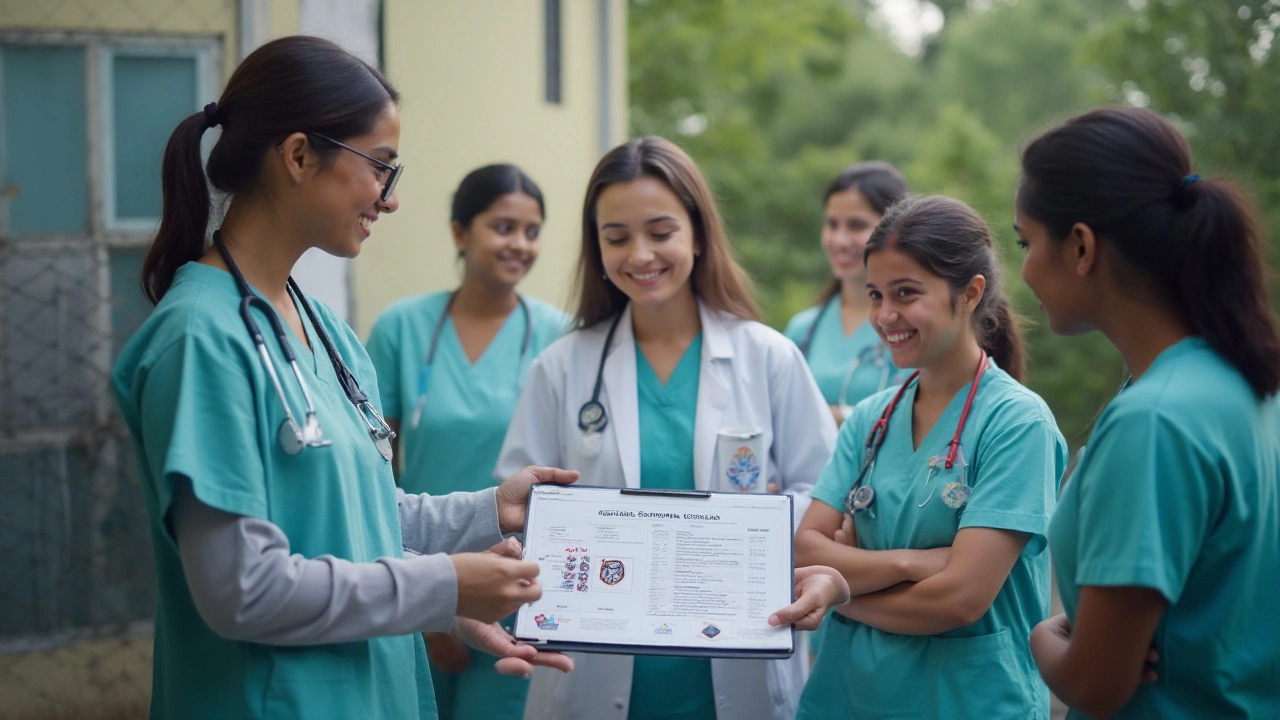
Communicating with Your Doctor
Recovering from heart surgery is not a solitary journey; it's a team effort with your healthcare provider at the helm. Open communication with your doctor is crucial as you navigate the delicate phase of resuming oral activities post-surgery. It's essential to enter discussions well-prepared, having reflected on any concerns you might have and being ready to voice them confidently. Establishing an honest and transparent dialogue will allow your doctor to offer tailored guidance that aligns with your unique medical history and recovery trajectory.
Before delving into specifics, remember that every patient's recuperation is different. The same principle applies to discussing intimacy concerns, where a one-size-fits-all approach simply won't suffice. Ask your doctor directly about when it might be safe to engage in intimate activities and if they have any specific precautions or alternative suggestions for you. A great starting point for these conversations could be to inquire about signs that indicate readiness for post-surgery intimate activity. This can ensure you're not jumping in too early, which could complicate your recovery.
Your body is like an orchestra—each part playing its role synergistically for a beautiful outcome. A recovery journey should strive to find harmony instead of speed. — Dr. Kendra McCullough, renowned cardiac surgeon.
Another aspect to consider is shedding light on any physical or emotional changes you've observed post-surgery. These insights could influence your doctor's recommendations regarding resuming intimacy. For instance, a discussion on physical endurance and energy levels will help gauge whether you're ready to embrace these aspects of your life. Sometimes, hearing from other patients who've been on a similar journey can be reassuring. Your doctor may facilitate connections with support groups or peer mentors for shared insights and advice.
Effective communication is a two-way street. While you convey your concerns and inquiries, listen to the advice and recommendations provided by your healthcare team closely. They have your best interests at heart and are equipped with extensive knowledge and experience. They may also offer tips on how you can gradually build up your activity levels or suggest complementary therapies that help with the recuperation process. Informed, careful steps forward can make a substantial difference in avoiding unnecessary setbacks.
For a more rounded dialog, jot down any questions or uncertainties about intimacy as they arise during your recovery journey. This will ensure you cover every point of concern during your appointment with the doctor. Remember that heart surgery recovery is not merely physical but also psychological. If you're unsure about discussing intimacy or have reservations, confide in your healthcare team. They will likely present a safe environment, reassuring you that no question is too trivial when it comes to health.
